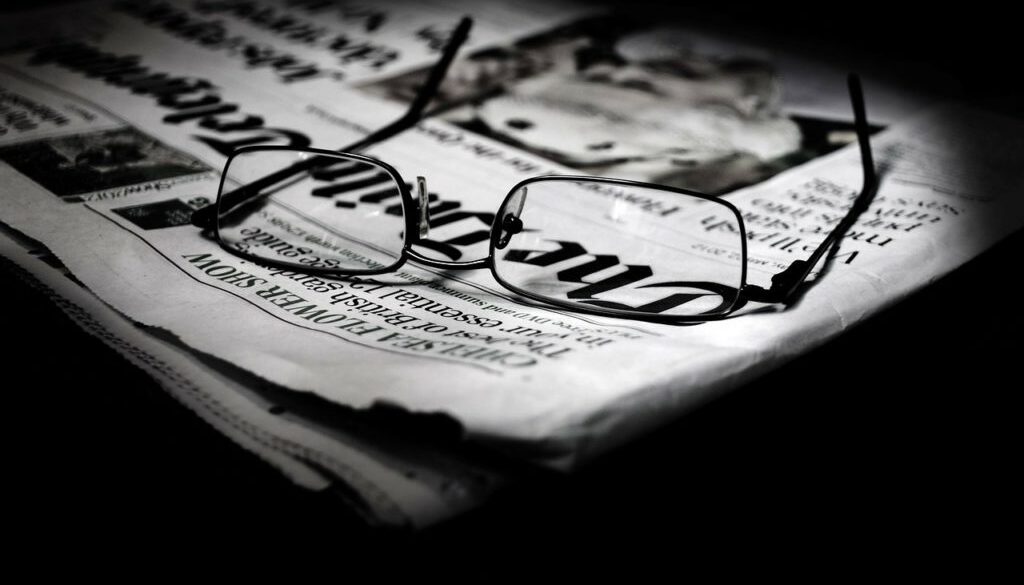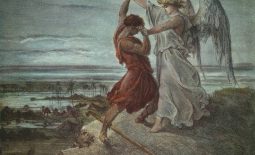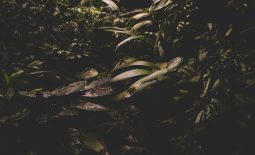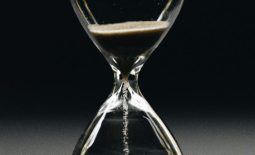Between The (Head)lines
‘Swarms of Locusts Devour Egyptian Orchards and Ruin Historical Landmarks. ‘ Pharaoh and Advisors Proclaim National Emergency’. ‘Sudden and Impenetrable Darkness Paralyzes Egyptian Public Life; Economy Grinds to a Standstill’. ‘Unspeakable Tragedy Strikes at the Heart of Every Egyptian Family’.
If the plagues of this week’s Torah portion would have occurred in contemporary times, perhaps this is what the headlines would have read.
Like many of you, I’ve been following the headlines about the Coronavirus outbreak. While I leave assessments of this new virus to the epidemiologists and public health experts, I think we can glean meaningful insights about our moral responses by reading between the headlines. What is the fate and experience of the people of the city of Wuhan who have been isolated in complete lockdown? Why has so much of the more salacious reporting emphasized the danger of contagion and the closing of borders instead of focusing on the heroics of the Chinese health care workers providing care to thousands or the myriad kindnesses performed by ordinary people during these moments of crisis? For all of the language of pandemic and global emergency, how does this crisis speak to our moral emergency?
It seems too fitting that we are reading about plagues in Parashat Bo amidst this latest viral scare. Both in the Biblical narrative and today, the disasters we are confronted with reveal much more about how we meet their encounter than about the disaster itself.
The word ‘plague’ is a misnomer. The word ‘nega’ is translated as plague but the root ‘nun-gimmel-ayin’ actually means ‘to touch’ or ‘to affect’. The other term employed by the Torah to describe the Divine punishments meted out against Pharaoh and his nation is ‘ot’, ‘sign’. The plague has little intrinsic value but is meant, like the ‘etzba Elohim’, ‘the finger of God’, to point to a much deeper truth. The truth of God’s power, Pharaoh’s arrogance and the vulnerability and codependency of both the Egyptian and Israelite peoples.
These responses are remarkable in their contrasts and paradoxes. In Exodus 10:7, Pharaoh’s courtiers try to practice realpolitik in the onslaught of all-devouring locusts. ‘Let their notables go to worship their God! Are you not yet aware – ‘ki avdah Mitzrayim’ – that Egypt is lost?’ One can easily imagine the scenario: Pharaoh’s authoritarian technocrats are trying to exert damage control, but they are starting to see what Pharaoh’s hardened heart blinds him: that there is no alternative and that their despair is deep and warranted. This is in contrast with the response of the Israelites to the second-to-last plague: ‘choshech’, or darkness.
The three full days of darkness must have been terrifying and the Torah’s terse language describes it well: ‘Lo ra’u ish et achiv v’lo kamu ish mitach’tav sheloshet yamim u’l’chol bnei Yisrael hayah or b’moshvotam’ – ‘For a person and their fellow (lit. brother) could not see each other or stand up for three days but all the Israelites had light in their dwellings’. (Ex. 10:24). This idea of light amidst existential crisis is also echoed in the Book of Esther which we read with Purim, and reverberates in the Havdalah liturgy: ‘La’Yehudim haitah orah v’simcha v’sasson vikar’ – ‘And the Jews enjoyed light and gladness, happiness and honor’ (Esther 8:16) This one terse line, where the Israelites enjoyed light in their dwellings, calls out ‘darsheini’, ‘interpret me’. Like in every Midrash, we are encouraged to read between the lines.
If we contrast the two responses – desolation versus light, despair versus hope – a powerful message emerges. Our response depends on our relationality. Pharaoh’s servants are a model of hierarchical transactionalism. They aren’t ideologues – they question Pharaoh’s judgment time and again. Instead, they are technocrats and lose hope when confronted with the consequences of their king’s actions. There is little comfort in the trappings of power, scant moral guidance in their fortress of solitude. Yet, the Israelites, despite enslavement and choking darkness, can still muster light and strength. The secret lies in ‘lo ra’u ish et achiv’ – ‘and a man could not see their brother’. Why does the Torah use the word brother or sibling?
The Torah wants to make a point here about relationality. The darkness might have been so thick you could have cut it with a knife, but it did not break down the relationships and sense of humanity between people. It is this very thing that brings light into their dwellings. The 19th century Rabbi Yitzchak Meir of Rotenberg, the first Gerer Rebbe, wrote in his Torah commentary ‘Chiddushei HaRim’: ‘There is no greater darkness than one in which “a man did not see his fellow”—in which a person becomes oblivious to the needs of his fellow man.” The Israelites were able to defy the crisis on the strength of their mutual solidarity.
Whatever the challenges of our current conflicted age throws at us, perhaps we can view these crises as ‘otot’, ‘signs’, which bear witness not to our fears but to our responses. From the highest civic institutions and halls of power down to our humble dwellings and intimate settings, we are shown a choice: despair or hope, cynicism or solidarity, darkness or light. The distinction lies in our ability to create community and widen the circles of concern rather than stooping to our baser, fear-driven and xenophobic instincts. This dichotomy plays out on every societal level; from the tiers of international diplomacy and national government to the lived experience of building small and local community.
What gives us hope is the vision we see unfold in our community here in Agudas Achim: the love, care and support we give each other, the dwellings of light we build for the exploration of transformative ideas and acts of service, in our locality and beyond. And we need you to be part of that holy mission. We need each member and friend, old and new, Jewish or non-Jewish, young or old, secular or religious, to confront the challenges of our times with light, love, service and compassion. We need to see each other as ‘achim and achyot’ – as siblings – as is incorporated into the name of this community. With each act of kindness, we are pushing back against the notion that all is lost and we will continue to light our lamps and offer welcome. I am so happy that you have joined us in this sacred calling. May God bless the work of our hands. Amen.




